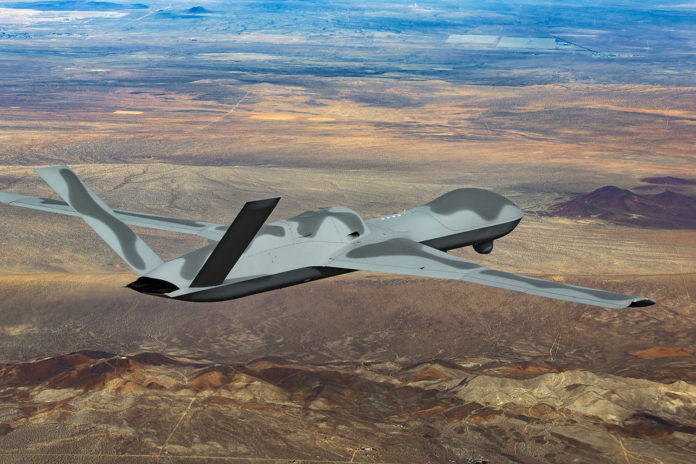The American company General Atomics Aeronautical Systems (GA-ASI) has been selected by the U.S. Air Force (USAF) to modify two of its company-owned Avenger Remotely Piloted Aircraft (RPA) with Skyborg autonomy technology. Skyborg will become the foundation of Artificial Intelligence (AI) / Machine Learning (ML) autonomous capabilities for a family of future USAF unmanned combat aerial vehicles.
The company says the devices will then be used as part of various experimentation events in 2021 and 2022, which will enable manned aircraft to control Avengers while in flight and relay specific information between the manned and unmanned aircraft. When modified, the Avenger drones will receive upgraded datalinks and the core Skyborg System Design Agent (SDA) software, as well as other payloads. Flight tests of unmanned vehicles are planned to be carried out at GA-ASI flight centers in Southern California.
“The Avenger platform is a jet-powered, advanced RPA that is well understood and has undergone more than a decade of research and design,” said GA-ASI President David R. Alexander. “We have already shown its suitability as a next-generation host for advanced AI software. This next phase of integration will combine the Skyborg software with GA-ASI hardware, in order to prove that a dynamic mix of manned and unmanned aircraft can communicate, collaborate, and fight together.“
According to the AFLCMC, the Skyborg Vanguard program’s objective is to integrate autonomous and attributable unmanned aerial vehicle (UAV) technology with open mission systems to allow manned/unmanned teaming. Skyborg will provide the foundation on which the U.S. Air Force can build a ‘best of breed’ airborne autonomous system that adapts, orients, and decides at machine speed for a wide variety of increasingly complex mission sets.
General Atomics unveiled a conceptual version of the Avenger called “Defender” in February 2020. It is intended to serve as an air-to-air missile platform for protecting large, slow-moving aircraft, including in-flight aerial refueling tankers. According to current plans, the US Air Force intends to adopt unmanned wingmen into service in 2023.
